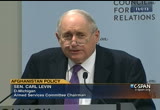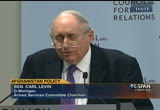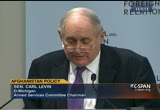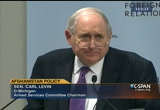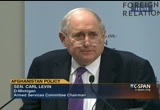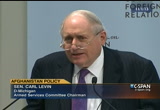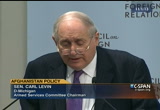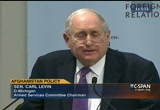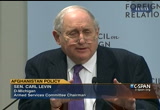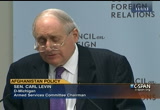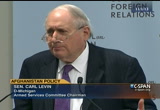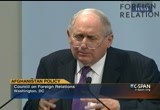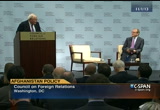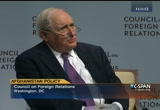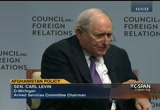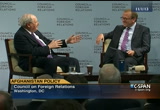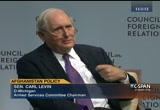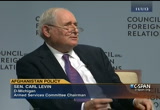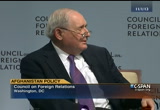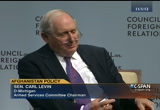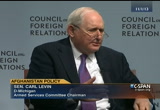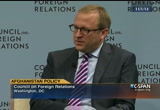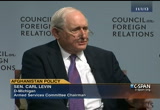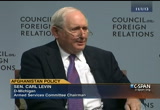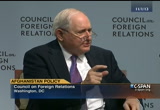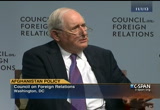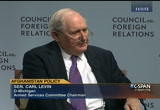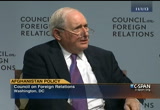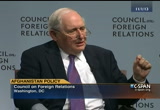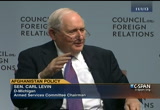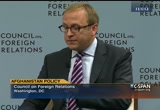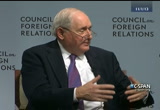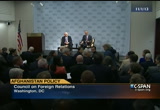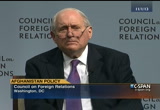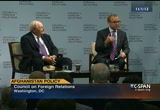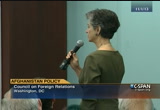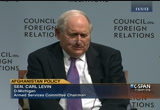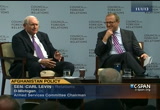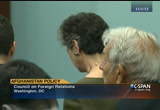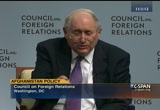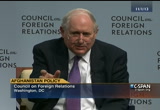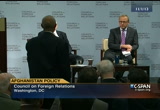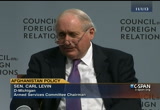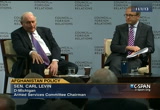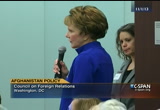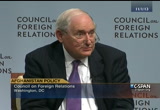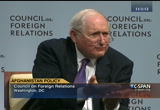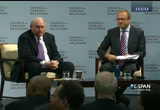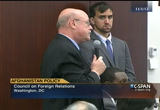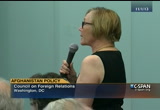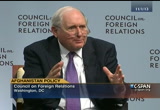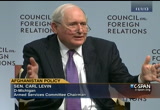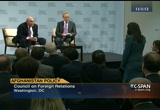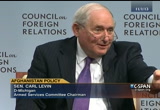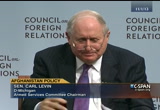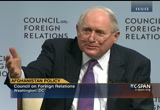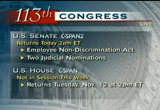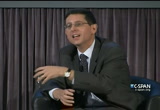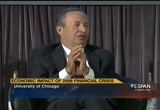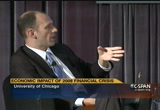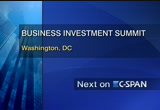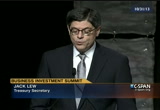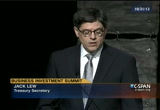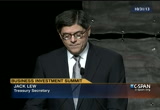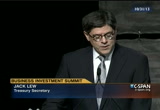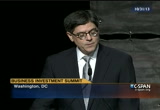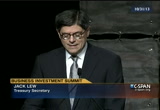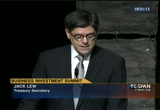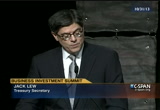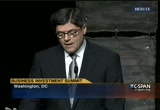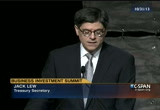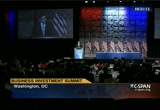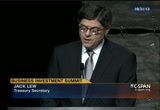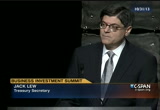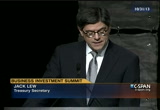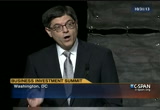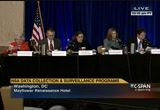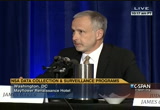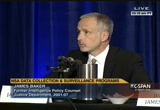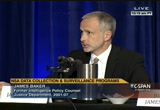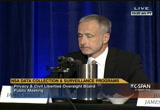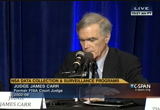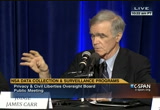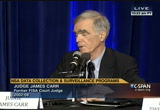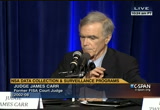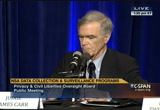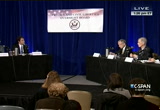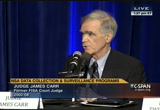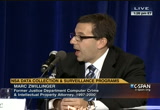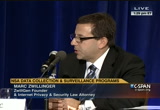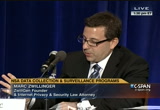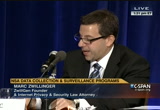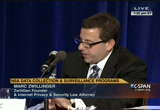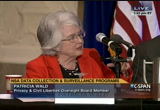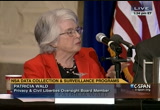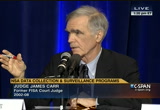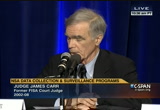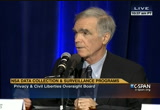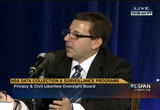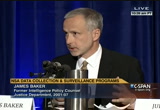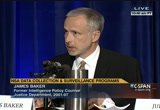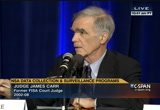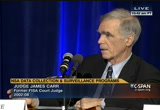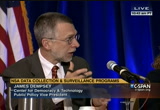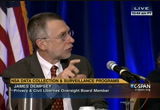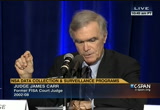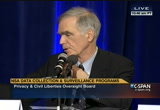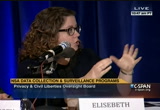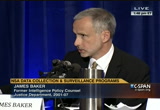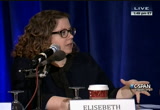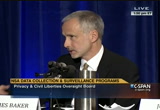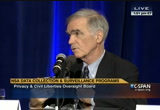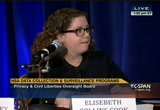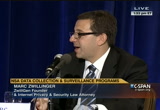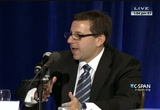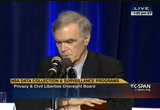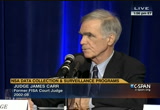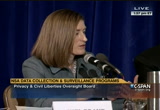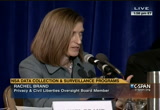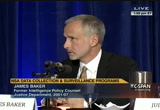tv Key Capitol Hill Hearings CSPAN November 4, 2013 12:00pm-2:01pm EST
12:00 pm
started with three students. now 1000 of them. 3000 are women. courses that iof will not go into but have recently been opened on a new campus. international center for women economic development established with the department of defense. that offove to make the record, but i cannot. i am sure mike some of my colleagues would say what are we using the department of defense dollars to open up the women's economic element school, why isn't that a id dod? thedds significantly to security of the country. basically the answer is because the dod did a number of things. of theed the development
12:01 pm
country, which is so essential to its security. , thee story we got american university the town student talks about his life experience. the taliban was there and took refuge with his family. younger boy at that time. as third -- soon as the taliban were dripping out he came back. as a matter fact, how to read and to write. now interviewing as a job as a .ales manager there are full fulbright scholars at the university in kabul. he wanted me to say thank you to the american people. this is as close as i could come. the education system and
12:02 pm
afghanistan. so many of them, the number given to them is counterintuitive. so i do not use it. in terms of the lower grades, before you get to colleges and universities, before the taliban was driven out, to the extent they have been, 900,000 boys. now a million students in school . 3 million of those are girls. none of those who could've been educated before we got there with our allies. were 20,000e teachers, all male. is now 200,000 teachers. 60,000 of whom are women.
12:03 pm
health care much improved. child mortality significantly down. afghan refugees who fled pakistan have returned home. how is it that 67% of the american people recent survey think that the afghan war was not worth fighting? how did that happen? because the picture is much, much better than that number.
12:04 pm
i just don't believe that the american people have had a fair or fuller picture of the events in afghanistan. i believe that the press has missed a good story. it hasn't missed the problems. it has missed the progress. the impression that our people get doesn't come from either. it comes from what they read or hear or see and what they have which is fair game. and they should be brought into the light and disclosed and written about and talked about. but what has been missing, i believe, is the part of the afghan story which represents real progress so that the american people have been deprived, denied the sense of success or at least partial success which i believe they are entitled to because of the
12:05 pm
loss of blood and treasure by our people. i think it is a sad -- it is sad that our people don't have that sense that hey, we have made some progress in afghanistan. the picture basically has just been too one-sided focused just too much on failure and on discord. to leave you now have to decide what we are going to do, what is the next steps in afghanistan? we need a security agreement a so-called bilateral security agreement for our troops to be able to stay. i hope that will be reached and reached soon because i think we need a continuing relationship
12:06 pm
with afghanistan to try to do everything that we can within reason to keep the progress moving in the right direction and not to see a fallback to taliban control or taliban rule. in terms of the security on the ground, the taliban has not accomplished their strategic goals. they have not been able to hold any additional territory. last year there were 4,000 sites that had been turned over to the control of the afghan security forces and there were attacks against 3,000 of those sites. in 100 cases of the 4,000, there was temporary success by the taliban attackers. temporary. and in none of them was it any kind of permanent success.
12:07 pm
it was very temporary and then turned back. so that the security situation from a military perspective has significantly improved. even though and this is critical and i will stop here, we turned over the entire security basically to the afghans. and that has been a huge success story. we -- our commanders have been surprised by how well the afghan security forces have done. now this is not perfect. there are places where the security is not quite as good with the afghan forces there on their own. they are now basically on their
12:08 pm
own. pretty quick. it doesn't seem quick. a ten year war seems like forever but in terms of the transfer of responsibility to the afghan forces this has been the last couple of years essentially. i remember now much time and energy and effort we spent just a few years ago trying to get the data on how many of the afghan forces were being partnered with us. how many were being led by us. how many were on their own. now basically they are on their own. obviously we have supporting troops still there. on their way out. they will all be out by the end of next year except for perhaps a force that will remain. we don't know the number but perhaps a total coalition force of 10,000 who will remain mainly to help on logistics on perhaps on intelligence and perhaps additional training, perhaps on the helicopters and air force. there is some special activities which will be engaged in by whatever the residual force is, and ha that hasn't been decided yet. nonetheless, they are basically now securing this country on their own. they have done a better job than i think most of our commanders have expected. we need to be continually engaged in afghanistan. we need for that to happen. we need to have a bilateral security agreement.
12:09 pm
president karzai is always a challenge. and i'm very diplomatic when i say that. this is a place of diplomacy. i want to be diplomatic. and his rhetoric has been stunningly bad at times inaccurate at times. said things that i can't figure out why he is saying them, what the motive is. like one of the things that he says is that nato has not achieved any security success in afghanistan or he will say that we have at time be in lee with the taliban. and i asked him directly. i said what possible motive could we have to be in league with the taliban for one minute when they are killing our men and women and your men and women? what could possibly be our motive? and he said well, he has been trying to figure that out himself. [ laughter ] >> and then he -- i said well, it hurts, it hurts. the american people hear you and by the way, he is almost alone in terms of the leadership of that country that acts as though it doesn't make much difference whether we come or stay. he is almost alone. you talk to the ministers there, you talk to the educators there, they want us to stay. we can't stay.
12:10 pm
12:11 pm
years ago. or when the brits or russians or whoever. >> alex and. alexander. you go back further than i do. anyway, that is it. and i just told him, i said you know, it just is -- you are undermining a goal which you obviously want, which is for there to be some kind of a residual presence and your people clearly want by any polling or any conversation. and so we had a good healthy conversation, not my first with karzai but perhaps my last, i don't know. anyway, thanks for the invitation and we would be happy to engage in conversation thank you. [ applause ] >> so i want to ask you there is a lot i want to ask you about afghanistan. but i want to start with the current dustup over the n.s.a.
12:12 pm
and over our, you know, alleged espionage of friends and allies around the world. >> still alleged? >> i guess it is pretty much acknowledged. i tried to get an explicit acknowledgement out of the white house and they haven't gone that far. >> what was the apology for if they haven't acknowledged it? anyway. >> the statement about angela merkel is that the united states is not and will not be listening in on her phone conversations. there was never any statement about the past tense. it was always current, future. did you know this was going on? you got all of the security -- >> not specifically. i think the most that i would have known would have been the security would have been the intelligence assessments. without saying specifically where they came from. in other words, it could be say, well, that the source of some assessment would be high
12:13 pm
level officials, for instance, in a country but you don't know whether that was one on one or transferred anonymously in conversation. whether it was overheard. so the source is -- they don't describe in the reports that we get that so and so's phone was -- conversation was tapped. that is not the way the reports. i would say that people assumed that there were conversations which were overheard but i don't -- it wasn't as though they come to us with a report saying we want you all to know that we earliesenning in on -- that we are listening in to conversations of leaders.
12:14 pm
>> not going to believe with merkel just said. >> yes. >> it didn't shock you when you read the report? >> it didn't shock me. i think it startles us when we look at or we hear of something that sounds to me so wrong. i don't think we ought to be tapping the phone conversations or listening in on the phone conversations of our allies' leaders. >> period? >> period. now the question is who are our allies. if there is a list. >> there is a list. nato and the major nonnato allys. >> i can't confirm that here. but allegedly now nine additional leaders according to some of the reports. i don't believe all of the things i hear or read. even from you. present company excepted. >> it depends on your source. >> right. >> and sometimes you guys say anonymous.
12:15 pm
>> right. >> just maybe no more than once a day. but we hear frequently in the media an anonymous white house source. we don't know who the heck that source is. and there is times with some investigative reporters, obviously not you, who will try to get information from us. it happens all the time on the hill. a reporter will come up and say i heard that you are planning a trip to the moon. or i better make it more logical. planning a trip to north korea. >> okay. >> kind of like the moon. >> and that reporter never heard that.
12:16 pm
he is saying i heard, hoping because i did go to north korea ten years ago that maybe i got plans now. and what -- or there is a rumor that he heard. so, you know, some very aggressive investigative reporters are able to get anonymous statements and use them to get confirmations. i mean it is a well-known thing. >> but back to i mean the question here though is we have our nato allies, we have the major non-nato allies. that list includes afghanistan. includes pakistan. would it be smart for the united states to foreswear any listening in on the leaders of those two countries? >> the test for me is whether or not the leaders have a reasonable expectation that we are not going to try to listen in on their expectations. that to me would be a test. and if there is a reasonable expectation that we would not be trying to listen to their conversations then i think we ought to have some kind of an understanding with other countries about protecting our leaders from listening in -- from being listened in to. it is kind of a -- using it as kind of a privacy test, what do americans, what is their reasonable expectation as to whether or not their business records are going to be opened to more than the telephone companies,. >> right. >> kind of that issue. what is the reasonable
12:17 pm
expectation about privacy? i think that our friends and allies, leaders ought to have -- do have or should have, by the way, even if they don't and they are so cynical now giving up believing that they won't be tapped by their best friends, i think we are better off in terms of trust because we need the trust of our allies' leaders. we need that trust and i think it is better that there be a reasonable expectation if there already isn't one that the conversations that are intended to be private of our friends p. leaders are not going to be intervened by us. that is my test. >> are you concerned that we could see the pendulum swing back. you talked to officials that are concerned that we are going to overcorrect this.
12:18 pm
even if it went a little bit too far. why are we listening to chancellor merkel, that there will be a move to really constrain what the n.s.a. and what our intelligence agencies do and we could have something like, you know, i mean much of the 9/11 report talks about how we went too far after the church commission and all of that. >> i haven't seen evidence of it yet. sure, it can go too far. but from what i have seen, we are not anywhere near going too far even though we could go too far. the pendulum could go too far with the whole n.s.a. metadata issue. a fascinating issue. you didn't ask the question so i won't take the time to give you my views on it. him i haven't seen the pendulum swing too far yet. >> get back to afghanistan. the meeting with karzai.
12:19 pm
he said all of the things you said he said, talked to some u.s. officials, some off-the-record. we will talk about him as if he is a little bit unstable. >> i don't think he is unstable. >> what is it like to be in the room with him? >> he is a -- a very friendly conversation, first of all, by the way. he was very direct. i talked to him about the things that he says and the impact that that has on us and on our people and that i don't understand his politics, by the way. if his people want a presence a an ongoing presence why is he saying things that make it either unlikely, less likely, or that he doesn't care that much? what is the politics? i don't get it. i'm a politician. once in a great while you will see politicians say things for public consumption. i know it is rare. but once in a great while politicians will say something for their publics that they don't exactly believe
12:20 pm
themselves or they would stay differently. why is he saying these things? his -- it is totally inconsistent with where his public is. i don't get that. the conversation i want to emphasize are very friendly, very direct. his first question was about n.s.a. you know, trying to put me on the -- trying to put me on the defensive. he said why are -- he says i presume you are tapping and i go why are you doing that to me? and i said we are -- we tap everybody. we don't discriminate. [ laughter ] >> not quite true, but -- it wasn't true but i decided let's go on to afghanistan rather than -- >> right, right, right. >> now, he -- obviously you have a presidential election going on in afghanistan. see any signs of that when you were there? >> a lot of evidence of it actually. when i say evidence, a lot of discussion about it. not evidence. the signs, the answer is we
12:21 pm
didn't see visible signs. a lot of discussion about it and a lot of confidence that it is going to happen. >> scheduled for what, april 10? >> i don't know the exact date but it is in april. the military there are pretty confident that they are going to be able to prevent the taliban from disrupting it. that is the taliban goal would be to make it so that the afghan people don't have confidence in the outcome? >> what does karzai do after all that? go and establish a presidential library? >> no, he has got -- he is building a modest little apartment for himself. 10,000 or 20,000 square feet or whatever it is. on the grounds. and i think that he will -- he is going to stick around. >> you think we will have a genuine transition. there are how many candidates? >> 11 left or 10 was it? i heard there were 10 out there. >> and do we -- >> i thought my staff would
12:22 pm
help me. ten, thank you, bill. >> and do we -- what do we think happens post-karzai afghanistan? i mean we got war lords running -- i mean what is -- >> i'm obviously more optimistic than perhaps the average american is given the information that has been given to them. i just see evidence of progress. if we can maintain and if we can work out a bilateral agreement for us and our allies that allow us to have a small presence but an effective presence there i just think -- i know what they want to do. they don't like the taliban and they like their army. they got no confidence in the government in terms of it being corruption-free or anywhere near that. the corruption problem remains there. the lack of services remains there. this isn't like the afghan
12:23 pm
people have great confidence in their government, they don't. but they do have confidence in the army and they have for a long time and a few years ago they didn't have a lot of confidence in the national police. they seem now from everything we can gather to have more confidence in the national police. and the local police which i think now is at about 25,000 and they are trying to increase to 40,000. and to have it in more places. they really have confidence because that is their own elders that basically are pointing and connected to that. they are defending their own villages. anyway, the security part i believe is going to continue to give the taliban problems. the taliban will continue to be a force particular fly rural areas. i don't want to underestimate that. by some measures they have actually in some places afghanistan is slightly less secure now than it was two
12:24 pm
years ago. in some places. they are protecting their own villages. that heart, the security part emma i believe will continue to give the taliban problems. they will continue to be a force particularly in rural areas. i don't want to underestimate that. in some places, afghanistan a slightly less secure now than it was two years ago, in some places. >> if there is no security agreement, we cannot stay. we will not put our troops in a situation where they are at risk because of how they might be tried in a court order we don't have confidence, for instance. >> how really possibility is it that there is a deadlock and no agreement? what happens if we just take up and leave 100 cent? >> i think it is likely we will get a bilateral security agreement but there are a few issues that may remain unresolved i still call him
12:25 pm
senator john kerry, but secretary john kerry did a terrific job and working on a couple of successful solutions. >> does he get along with karzai? >> he is directed his hands on, so i think people respect that. he does not just read from talking points come a which he makes good use of, but he also has his own knowledge and experience which he brings to bear and his own background working out problems with people, being direct. people like him. he is a big plus there are. if it does not happen and we pull out, there's a greater chance that they will fall back into a society which they don't want. >> before you get to other questions, just a few more quick ones on this. should we be negotiating this agreement with karzai along with his successor?
12:26 pm
is it essential to get it done before he leaves? >> it is. >> why? >> you don't want it to be an issue in their campaign. all of the candidates basically want an ongoing relationship, not just with us but with the coalition. whatever that number is, 8000- 12,000 number range that you sometimes read about which has not been decided upon by the president. and >> let me ask you about that. before general mattis left he was talking about 13,000 american troops which would translate to about 20,000 coalition. but do you think is needed? >> i think we have a -- it is to them to recommend. my mission, or what i believe our mission is has always been to train the afghan forces and basically leave. one other comment about what happens if there is no agreement , that would be bad for the future of afghanistan, i think. there's a difference between
12:27 pm
here and iraq. they disbanded the iraqi army, a full listing that was done by the bush administration. >> he did not do that on his own? >> he did not. i know that. what happened here, we are going to have, we hope, 350,000 trained security forces in afghanistan. when i say "we come to let me be clear. they are going to have it. i long were member a conversation with an elder i had in this village maybe eight or six years ago now in a room not much bigger than this, a dirt floor, 100 elders sitting there and a few senators, if you have a sitting appear and just by chance we just happen to go to what happened here, we are going to have, we hope, 350,000 trained security forces in
12:28 pm
afghanistan. when i say "we come to let me be clear. they are going to have it. i long were member a conversation with an elder i had in this village maybe eight or six years ago now in a room not much bigger than this, a dirt floor, 100 elders sitting there and a few senators, if you have a sitting appear and just by chance we just happen to go to the village that day. it wasn't set up for us. we came in. we introduced ourselves the best we could in this little village. after that, we were able to ask a few questions so i ask this old timer -- they are all old timers -- what do you want us to do?
12:29 pm
do you want us here? he said we want you to train our army and leave. >> wow. >> we will then, someday, invite you back as guests. we have not done exactly that, but a sickly that is what i have always felt their mission should be, to train their security forces so they can secure their own country and leave, basically. >> although we did not dissolve the army, for the first five years of that army, we did almost no training we had general caldwell here talking about how his efforts were starting basically from the ground floor. >> for the training? i don't think it took five years, but my memory is that -- >> let me ask you this. the afghan national budget is about 20% financed by afghanistan and 80% financed by us and others in the international community.
12:30 pm
is that ever going to change? afghanistan is a country that cannot support itself, not even close. when will that turn around? >> first of all, there are agriculture is tremendous and it has potential, including exports. secondly, there mining has tremendous potential. it is all potential. agriculture is much improved, but you're right. they will not be able to support themselves for a long time. particularly if we can work out a bilateral security agreement, i'm not sure the funding we have indicated will be for this. >> from other countries as well as from us, a bilateral security agreement, i think it will be difficult as a practical matter to provide the funding to them if they don't want to have a security agreement with us.
12:31 pm
nonetheless, i think we're going to have have ongoing support in that country for many years with our allies. it is a much smaller amount than what it costs us now. the cost to us in the budget will dramatically decline even though it is an ongoing a few billion involved. >> great. now we will turn to questions. we have a well-informed audience with us. if you could stand and say your name and affiliation? we will get you next. you are good. you have the microphone. >> formerly the deputy secretary of defense in afghanistan and pakistan and now i am on the steering committee for afghan
12:32 pm
alliance which is a source of a lot of the information you're talking about. i have two questions. the first, many afghans tell me that one of the problems with the negotiation is they don't know what they're getting in return and they are afraid there has been no statement about what kind of commitment there will be after 2014. is there any possibility of the absence of leadership from the administration that the congress would step forward and make a commitment to afghanistan post 2014?
12:33 pm
to put some meat behind the bones of the outcomes -- so the afghan the don't feel that they are buying a pig in a poke. the american people are getting a false picture of afghanistan and i think your questions of the senator are good evidence of that. why is the media incapable of reporting the story that the secretary daschle sorry. maybe you should have been secretary. why do the american people have a false interpretation of afghanistan today? >> i will let you go first. >> if you want to answer both, be my guest. the administration has been fairly forthcoming in terms of commitments to afghanistan and what they could expect. i don't see the congress, particularly with karzai's comments, is going to be bore precise or forthcoming than the president >> i'm not really good at speaking for the entire media, but i will say that
12:34 pm
there's an issue of coverage in afghanistan generally and is that we don't do enough of it. it is extremely costly, extremely difficult. none of the major networks have euros anymore in afghanistan and , if anything, the problem is there's not enough coverage. that is probably an issue that goes beyond afghanistan. we tend to focus where there are difficulties and ask those questions. >> same thing with the congress. all you read is this negative stuff. >> i think we treated very fairly. [laughter] >> teddy roosevelt had the same complaint. >> barbara from the atlantic council. as for him i wanted to change the topic and him the topic little bit to iran. will the congress wait on imposing new sanctions end of this diplomatic process a little bit more time? it appears things are going
12:35 pm
well. i would like your assessment on how the talks are going. last time you were here, you spoke about syria and that the u.s. should be promoting the moderate opposition more robustly and it does not seem to have happened. what's the reason? thank you. >> let me take the second question first otherwise it may get forgotten in my age. on syria, i still feel that we are moving too slowly on a vote. there has been some very gradual improvement in terms of training and equipping of the that it opposition but i happen to think we have been much too slow and this. i went to jordan and turkey about six months ago, four months ago. i just think that assad is so unpopular in syria that if we gave greater support, military support, more lethal support and training to the vet it opposition -- they need to be fêted -- vetted-- it would lead is in him and him him to a better political settlement, which is the goal. in terms of iran, this is a really important point. i ran's rhetoric has changed. the tone of the meetings have changed. whether or not there is a real
12:36 pm
change beneath the rhetoric, in my view, it needs to be probed a untested. whatever the percentage is, some people say the odds are that this is just -- what did the college? a romance? -- what is the saying? >> charm offensive. >> where is my staff? i'm looking to the audience for my words. it's just a charm offensive with nothing behind it. it may be that surely that is all it is.
12:37 pm
some people say, there is a real chance here. whether or not it's a 10% him himhim him him him him him chance, 60% chance, it should be tested. it should be probed. the potential, if this is real, could be a major, major change. >> should congress know? >> i did not mean to avoid that. i believe we should not at this time add additional sanctions. we should fully keep those sanctions in place. that is how my believe, the main reason why iran is where they are out because those sanctions have had an impact. my committee, the armed services committee, has been very much involved putting those sanctions in place. alas national defense authorization act had the last tranche in that bill. i'm not one who has any sense at all and opposed to sanctions. as opposed, i am very for it.
12:38 pm
if we respond to this possibility in a negative way instead of being study and keeping sanctions in place, if we tighten the screws now when him him him him him him him him him him it looks as though, apparently against some opposition at home and in iran, that the iranian leadership may be willing to talk about ending, modifying, changing and making less threatening their nuclear program, and to response is negative, they could very well lose the very countries, particularly russia and china, who have stood with us to put sanctions in place internationally. it would weaken our current stations possibly, and i would
12:41 pm
12:42 pm
the perpetrator of that horrific outrage, they did not carry out that mission if it was to protect that came. the christian minority in iraq is very, very fragile and the relationship to the sunni, if it is what you say, in terms of iraq and the relationship, allowing the iranians to overfly and support assad is so totally terrible. nonetheless, he has a lot to talk about and if they want certain kinds of weapons, there's a lot of skepticism
12:43 pm
about providing any types of weapons if there are to be a condition to basically doing a number of things differently and making sure that those weapons are not put to the years that we could never support, hopefully. >> margaret warner, pbs news hour. if ronnie -- rouhani or his executives were willing, that the president has some authority to freeze some sanctions. the iranians are looking for a sign of good faith if they extended a sign of good faith. >> i don't think it would be appropriate for me to tell you what signs of action on their part should result in signs from us.
12:44 pm
i just don't feel comfortable doing that. >> it's clear the iranians are going to want something and pretty soon. >> they are going to want something and we are going to want something. what we're going to give them is producing something which is significant in terms of what they need to do and i don't think i'm comfortable in changing that. >> you do recognize the need for a quid pro quo. it would just be a negotiation measure temporarily. >> there's going to be a first phase hopefully within a month or show that shows that they're not just talking to friendly but
12:45 pm
they are the haters going to be different -- but their behavior is going to be different. you can reduce your 50% enriched uranium down to 20% but if you are still producing even 10% hindu go down with the 50%, and other words you reduce your stockpile to -- is it 10 or 20? if they are still producing it, then what? you know you go what to the net? you know? what's the net? how many months or years but take for them to produce a weapon under those circumstances? what is still to be negotiated? i really don't want to get into that. >> you knew they were going to move from that. >> not necessarily up and end of the day to move from that. >> if you want some sort of nuclear power, you may have to import it. >> that might be the ultimate game. >> it's a goal but it will not obviously happened in phase one. phase one will be something that, hopefully, if it comes off shows that they are willing to move significantly and that what we are doing in return does not
12:46 pm
endanger, does not leave us off significantly any worse place that we are now in terms of phase one will be something that, hopefully, if it comes off shows that they are willing to move significantly and that what we are doing in return does not endanger, does not leave us off significantly any worse place that we are now in terms of being able to act should they move towards a nuclear weapon. >> john sullivan, the center for international enterprise. thank you for your positive comments about afghanistan. we've been there for a long time as well and i've noticed a lot
12:47 pm
of positive developments. there are afghan business associations in the afghan chamber has been a way to go but the builders association and others are building the him himhim him him him him him him him him foundation for an economy. i will not say market oriented because it's not there yet but him himhim him him him him him him him it's definitely moving in that direction. the question i wanted to rescue was, you know we were talking about the negativity? to me, a good portion is coming from the various inspectors
12:48 pm
general reporting from afghanistan. you think you will get to the point where they can series the handle transfer of funds he? -- funds? >> no. >> pretty straightforward answer. >> i don't think they are to that point out all. the gm representative and dealer. there are real glimmers of enterprise. this is a significant deal. these women work during the day and they come to this place right to the american university campus to get the skills that they need to go into business. i know it will happen overnight and it's a real significant change to be a part of. >> i'm from the naval postgraduate school. it's great to have you here and listen to what you are saying. i want to start with what you opened with was telling the stories of the public that's it. the president was so good about telling the story when he campaigned that he lost that
12:49 pm
skill when he got into the white house. we have plenty of examples of that and, indeed, what's going on with the health care system -- >> don't go there. [laughter] >> we should start another website. >> afghan healthcare? come on. >> i'm talking about the importance of storytelling in getting it into the education system and am wondering if you could talk about that along with the press that we need to get people interested because it's all about selling new ideas. we don't talk about complexity. we live in a complex system. finally, last night i saw a play called "love in afghanistan." i think it's one of the most powerful plays of ever seen and
12:50 pm
i'm a performing arts junkie. i recommend everyone to go see it. it was fabulous. it addresses the things were talking about. >> it's a really important point. somebody brought over some young afghan music students about six months ago. it was terrific. we brought them to the capital so that some of my colleagues could see. i think there were like eight students on afghan instruments at a music school which could have never existed and they are there preserving their heritage. it has an impact when people can see a play or whatever, of course it does. telling stories are important.
12:51 pm
the problem on the other side is , i'm not a good storyteller, by the way. i admire those of my colleagues who are. it's the most powerful way to get a message across. my wife reminds me of this all the time. instead of statistics, you just said, how many teachers? they will not remember. there are 10 times as many teachers now, 40% are women, 30% are women. they won't remember that statistic. my wife will tell me that if she were here, why not just tell one story of one teacher? they would remember that? the answer to that, i'm afraid, and i'm a victim of this. you can tell an anecdote about almost anything. the question is how broadly based is an anecdote? under the taliban and i could tell a story probably of a woman who did something terrific and her relic in her village. you could probably find a story which would give you the totally wrong impression of the taliban, the tale of the elephant problem. is the anecdote a tale of the elephant or is it the elephant?
12:52 pm
him him him him him him him him him the statistics are the elephant. the anecdote is detailed but it's far more powerful, i think, and they could not agree with you more. >> we have time for one more very quick question and, reminder, this has all been on the record. >> now you tell me. [laughter] whoa. whoa. >> rebecca chamberlain, and a former intern of your stomach great state of michigan. the question is on china. can you comment on their role in afghanistan and our relationship with the?
12:53 pm
i'm thinking of all of the industry and could they be developed to operate with? >> great question and you have 90 seconds. >> i have read very different examples and they are much more aggressive and unwilling to be partners and i think the security situation is not one that they're particularly satisfied with in terms of moving in. i have heard stories about the chinese in afghanistan and they reflect their general view about business. they are very aggressive business people, far more aggressive than any catalyst of ever seen. can i tell a story? comes with an anecdote? -- end with an anecdote? your honor. >> thank you.
12:54 pm
>> we met with him 25 years ago, or whatever, the head of the communist arty and china, the number two or three guy. it was the only communist party in the world. we are arguing with him and china about human rights and we are giving him a lecture, in essence, on why it's important that human rights be part of an equation for a country that businesses have to respect the rights of their people. you have to respect the rights of workers, respect the empire not. we are giving lectures about businesses with
12:55 pm
responsibilities, in essence. he says, we have an old saying in china. don't mix business with these other things. that's the point of his old saying. business is business. [laughter] workers have rights. the environment has rights. and he's telling me we have an old saying, business is business cap go -- is business? >> we have an old saying, business is business, except with business. [laughter] [applause] [captioning performed by
12:56 pm
national captioning institute] [captions copyright national cable satellite corp. 2013] him him >> a him look now at the live events we will cover this afternoon. a session of the privacy and civil liberties data board. they will deal with the nsa surveillance programs. we showed the morning sessions earlier. you can watch them on c-span video library. we will be live with the afternoon session at 1:00 eastern time. the senate is in at 2:00 eastern live on c-span to continuing debate on work based discrimination bill. also considering to judicial nominations today. live this afternoon, the u.s.
12:57 pm
news on hospitals and health care. we will hear from former senate republican leader in surgeon will frisk as well as don usha leyla and the head of the cleveland clinic and tax six message -- texas medical center live at 3:00 eastern on c-span three. this evening, a look at the economic impact of the two thousand eight financial crisis with former top economic advisers from the past three administrations. monitoringll will be -- moderating. >> at the beginning of the 2009 year a sense of missed opportunity. the fiscal stimulus was needed. i wonder if a different kind of stimulus with some of the changes that larry hinted at, dropping high-speed rail and energy might have gotten bipartisan support. they say no republicans
12:58 pm
will oppose anything they suggest but back in 2009 many people were really hoping this would be the guy bringing us together. i am not blaming one fault -- side or another. to me, the question is could a different set of choices rocked the world together? critical of some of the more classically democratic parts of the recovery program. but i was there. the senate minority leader said the basic purpose of his minority leadership was to make sure the senate was not reelect it. i think it is not easy to make the case that people in the administration were prepared to walk along my old to get substantial support. so i think it would have been , and the difficult
12:59 pm
price of doing it would have much more stuff not in the infrastructure direction but in the tax cut direction that i think would have been fairly problematic. up on the last question on said policy and whether paying interest on reserves -- i was there. many of us in treasury were helping people on the hill. of republicans on the hill was the administration did not walk a mile. spendingrs of and cap came out. to me, that is -- >> the administration comes in january 20, 2009. they are already holding up many of our economic nominations as we come in. saying, it was quite clear
1:00 pm
the partisanship. >> this is completely counterfactual. christina romer -- i think it is completely counterfactual. thatou can see the rest of discussion this evening with former top economic advisers just before 8 p.m. eastern time. treasury secretary jack lew now speaking at a white house summit on business investment. he discussed the state of the global economy and called on congress to pass an immigration bill, reform the tax code, and replace across-the-board spending cuts note a sequestration. this portion of the conference is 15 minutes.
1:01 pm
>> thank you for that very kind introduction. it is great to be with you this morning. i want to thank the commerce department for hosting the first select usa summit i'm here with a very simple message. we do not take investment in the united states progress ted -- for granted. it is important for our prosperity. in our increasingly global economy, the united states cannot settle for the status quo. that's why president obama made fueling america's competitiveness the cornerstone of his economic policies. our economy is the largest in the world and looking to the future, we need to make it stronger by improving worker training and education, upgrading our infrastructure, and growing our manufacturing
1:02 pm
base. the truth is, there are additional things we can add and do to make america even stronger as a magnet for investment. before talking about what make ours economy such an attractive place to invest, and what we plan to do to make it even more attractive, i'd like to start by saying a few words about the state of the world economy. there's broad evidence of recovery across the global landscape. economic conditions, particularly in advanced economies, have improved, but there's no doubt that global command is not where it needs to be. in too many countries, unemployment levels are unacceptably high, especially among young people. as i said before, leaders around the world should make strengthening demand and creating jobs a priority to we can unlock growth that's robust, sustainable, and balanced. looking at europe, it seems the long recession is slowly fading even as critical steps have been taken to restore financial stability. this is good news since europe is so integral to the u.s. and global economy. nevertheless, growth in europe remains weaking with domestic remains weak with domestic demand particularly.
1:03 pm
it's critical that surplus countries contribute more to demand as deficit countries undergo adjustment. europe must also press forward on measures to address high unemployment and the formation of a strong banking union. after years of economic weakness and depolice station, japan appears to be turning an economic corner. economic growth has improved and policymakers have demonstrated a commitment to economic transition. this will require a careful balancing of fiscal policy and reforms that increase domestic demand. economic growth across many emerging market economies remains positive but has slowed somewhat. the slowdown is primarily because post-crisis stimulus has waned. the demand for exports has fallen. credit conditions have tightened. while these head winds will put pressure on some emerging economies going forward, most emerging markets have strengthened their institutions and frameworks over the past decade, and this will help increase their ability to adjust to the shifts in capital flows.
1:04 pm
in china, the world's second largest economy, policymakers have also made substantial commitments to reform. growth there continues to remain relatively robust but there's a question of thousand to sustain robust rates of growth over the medium turn as the chinese economy rebalances toward domestic consumption and away from domestic investments and exports. at the same time, china needs to increase the flexibility of its exchange rate regime and permit more access to capital and more open access to markets. the success of this transation matters to the united states, to asian countries and the global economy. china is currently conducting a series of high-level meetings designed to reform their agenda and we look forward to see how and we look forward to see how that plan evolves in the coming weeks. as we meet this morning, there really has never been another time when the world economy has been so interconnected. it's clear that what happens across the global economic landscape matters to us here at
1:05 pm
home. our prosperity grows when other countries succeed. economic challenges abroad reduce economic activity here in the united states. and we have a stake in each other's future. we need the world to sustain greater growth and the world continues to need the united states to be the backbone of a stable global economy. now when you look at the united states, while we still have work to do to speed up growth and create more jobs, we have been making significant progress. and one of the reasons we have been making progress is because the core of our economy is resilient. to fully appreciate that resilience, it's important to remember how much things have changed since the dark days of 2008. five years ago, our economy was hit by a devastating financial crisis that helped trigger the worst recession since the great depression. our banks were on the bridge,
1:06 pm
our housing market was in trouble and our auto industry was sliding toward the abyss. in fact, in the months before president obama was sworn into office, we were shedding roughly 800,000 jobs a month, and our economy was shrinking at an 8.3% annual rate. there was real concern that the united states economy would not bounce back. but it did, thanks to the tenacity of the american people, the determination of the private sector, and the bold, decisive actions taken across government. right away the president moved to pull our economy out of the recession. he worked to put out the financial fires, stabilize the automakers, and jump start growth. in addition he pursued policies to fuel our economy into the future. that meant investing in education and infrastructure, fixing a health care system that was broken, creating new rules so our financial system works better for consumers, and investors, and locking in lower taxes for 98% of all americans.
1:07 pm
and lowering barriers so entrepreneurs and businesses can innovate, grow, and hire. because of these measures we're moving in the right direction. the positive signs are real. since 2009 our economy has been expanding. over the past 43 months, private employers have added 7.6 million jobs. in fact, businesses have added more than two million jobs over the last year alone. and the end of this year, and the beginning of next year, show signs of further progress. the auto industry is growing again, manufacturing has increased. the global market has improved. american companies like ford and apple are starting to move operations back to the united states. we sell more products made in america to the rest of the world than ever before. the cost of health care is growing at the slowest rate in years. and our deficits are half of what they were when the president took office. so we have seen the united states economy make a turn around. our economy is actually recovered faster than any other advanced economy. just as it's becoming more expensive and more difficult to do business in other parts of the world, our economy is becoming more competitive and more attractive.
1:08 pm
business leaders from around the world tell me all the time that there's no other place where they would rather do business. on my very first trip as treasury secretary, i visited a plant in georgia and saw firsthand american workers producing electronic equipment that would be added to construction machinery for export to china. the plant is owned and operated by siemens, the german-based engineering company, and it's one of 130 facilities they run throughout the united states. siemens has invested more than $125 million in the united states over the past decade and invests about $1 billion every year in research here. when asked about it, they said, america produces better than anyone. the heart of our ability to produce better than anyone is
1:09 pm
our people. our workers are talented and productive. our entrepreneurs are the most determined and innovative. at the same time, we're the largest single market in the world. we have a deep infrastructure that connect this is vast market through pipelines and roads and bridges. our universities attract the best and brightest minds from around the globe. on top of that, we're experiencing an energy revolution in america. today the united states is less dependent on foreign oil than at any time in more than two decades. we produce more oil at home than we have in nearly 25 years and more natural gas than any time in history. this transformation is driving down energy costs for consumers and businesses. our increase in energy production is not limited to oil and gas. energy and renewable resources like wind and solar doubled in the president's first term and we will continue to make investments in these cutting edge technologies.
1:10 pm
so our economy has made progress and that progress has made the united states an even better place to invest. but i want to underscore for everyone here that we are not satisfied with the current pace of job creation and economic growth. we know that there are things that we can do to invest in american skills, american innovation, and american infrastructure. so that the united states remains the most attractive place around the globe to do business. taking action in these areas is good for growth and it's good for job creation. while the process create unnecessary anxiety, congress proved it can still do what is needed when it came together on a bipartisan basis just two weeks ago to reopen our government and raise the statutory debt limit. it's now time for congress to make a pro-growth, pro-jobs agenda the focal point. this will strengthen our economy at home and further cement the united states as the best place to invest, hire, and grow businesses. let me point to the key areas we can make a difference going forward. first as democrats and republicans meet to produce a government, they have an opportunity to forge an agreement focused on restoring our long-term fiscal health while making targeted investments to grow our economy. they should do this -- use this
1:11 pm
occasion to replace the corrosive, across the board cuts known as sequestration with fair and balanced deficit reduction policies. it's crucial that we close wasteful tax loopholes, eliminate costs where it makes sense, and use some of the resources we free up to invest in a few key areas like manufacturing, infrastructure and education. second, congress should finish comprehensive immigration reform and send a bill to the president for his signature. the senate has already passed bipartisan legislation and it's awaiting passage in the house of representatives. this immigration legislation would strengthen our borders, chart a path to earned citizenship, and increase economic growth by more than $1 trillion. it drives growth by attracting highly skilled scientists, engineers and entrepreneurs to our country. it will bring greater investment in the united states from beyond our shores, create new job opportunities, ignite new consumer demand, and spark business activity.
1:12 pm
it would do all of this while increasing payroll tax revenue that will reduce our deficit and put social security and medicare in a more stable footing. another bipartisan bill that can strengthen our economy is the farm bill. bipartisan legislation that's already passed the senate is designed to protect america's farmers, ranchers and provide a safety net for america's most vulnerable children. the farm bill conferees have an opportunity to work together to develop a bipartisan package to promote economic growth and job creation while ensure that needy children are well-nourished. over the years, democrats and republicans have come together to foster economic growth, job creation and investment. we can see that bipartisan bo gress as we work together to reform how we tax businesses while upgrading our infrastructure to meet the economic needs of the future. let me be clear. the president is committed to business tax reform. this will help create and retain good jobs in the united states. the fact is, the united states now has one of the highest
1:13 pm
statutory corporate tax rates in the world. but as high as that rate is, it only raises about an average amount of revenue as a share of g.d.p. when compared to other advanced economies. our code is also full of special interest tax breaks and loopholes while hurting others that are investing in the united states. we can do better. and we can do this by broadening the tax base and lowering tax rates in a way that doesn't add a dime to the federal deficit. the president put forward the details of his tax reform and pleadmead clear his commitment to business tax reform paired with an infrastructure package paid for with one-time revenue. we have a real opportunity ahead to seize the mantol tax reform and establish a simpler, fairer and more competitive tax reform. they share much in common with the approach the president has put forward. there's no reason we can't start with the substantial policy areas we agree on and come together to find common ground.
1:14 pm
in addition to reforming our tax system, we must finish the work of creating new trade agreements that are free and fair. they must open up markets for america's businesses and must add to the millions of american jobs that are currently supported by trade. as congress comes together in support of trade deals, we'll help expand the biggest market place in the global economy and reinforce the position to invest and export. to that end, we're working to complete a transpacific partnership. this will boost exports and level the playing field in the asia pacific. i want to point out that the united states welcomes investment from around the world, from every type of enterprise and all sectors. we are committed to mane taining the most open and transparent investment environment. our process for reviewing
1:15 pm
national security of foreign investment in the united states focuses solely on national security considerations and reviews are pleated within a period of one to three months. so as we press forward, we know where we need to focus our efforts. the priorities just outlined are clear and doable. they amount to real solutions that will make a real difference for our economy now and in the future. and i'd like to close by thanking the commerce department for hosting this summit, as well as everyone in this room for coming today. america has always been known as the land of opportunity. a place where you can make it if you try. and have no doubt, opportunity in the united states is very much alive and well. it's alive for our workers, it's alive for our businesses, and it's alive for all of you who invest here. thank you very much. [applause]
1:16 pm
c-span is live for the private civil liberties and oversight board. the board during the session will be hearing from officials who deal with the fisa court. >> good afternoon. i am going to start the first afternoon session. the topic is foreign intelligence surveillance. we are pleased to have as theesses, james baker with department of justice, office of intelligence, and policy review. judge james carr, a senior
1:17 pm
federal judge of the united states district court and formerly a judge from 2002 2008. sillinger, a former doj attorney at the computer crime and electrical property section. these make your remarks and then afterwards we will have five minutes for each of the board members. >> thank you very much. i would like to thank the board for inviting me back. it is an honor to be here and an honor to be able to discuss these kinds of issues in this type of setting. i appreciate the opportunity. i have just a couple of quick comments. is focus of our discussion on 702 of the fisa amendment act patriot act.e while these are very important statutorily authorized and
1:18 pm
judicial he reviewed surveillance programs involving the collections and communications -- collection of commit occasions and to medications data with many americans, they are only part of the story. that was discussed this morning in the panel that i was able to attend. in particular, as the panel is aware, the government conducts service activity using a number of different authorities. especially including outside the united states under executive order -- as you are evaluating these issues, i asked the board you think more broadly about them. the privacy issues you are confronting do pop up in a number of different contexts. as another example, even with respect to telephone records, telephone calling records, there are several ways, eight to 10 by the government can go about obtaining the same types of records that you are
1:19 pm
talking about when you are talking about 215. 215 is incredibly important when talking about these types of records but it is only part of the story. i would urge you to think broadly. as i mentioned the last time i was here, i would also urge you to think probably because the topic that has not been discussed very much is cyber and the need to think about the critical privacy issues and the data collection issues read they pertain only to counter terrorism and foreign intelligence but to cyber. i am happy to talk about that at length if you are interested. ,he other point i would make is with the foreign intelligence was withnce court, i you department of justice and i can elaborate at length, if you want to be. in many ways i would say, notwithstanding much of what has been written in the press, the fisa court is a national treasure. it has done its job. been saidat has not
1:20 pm
enough, so i wanted to say that at this point. however, the fisa court is not some type of super inspector general over the whole apparatus that we have to collect intelligence. that is a multibillion-dollar enterprise conducted by thousands of people. that is not what the court does. i think, with respect to 702 and 215, i think we have reached the outer limits of what you can reasonably expect a court to do in this setting. i'm happy to discuss that at length. at the end of today, in my mind, it is the responsibility of the president, the executive branch, and congress to conduct management oversight and control of these types of activities. i am happy to talk about transparency and the issue of whether we are going to have an advocate or something like that in the question speed thank you very much. >> thank you very much for coming back with us again. judge carr? >> just like baker, with whom i worked for five or six years -- i cannot for member if you left
1:21 pm
before i did or not. i am pleased to be here and part of the conversation. as you may be aware, as a result of the op-ed i happened to january,n the 23rd of making what i consider to be of modest proposal, which i will repeat this afternoon to improve process and certain applications before the court and, i hope, would enhance public confidence in some of the decisions the court reaches. that proposal is quite simply that congress give the fisa court judges either the discretion or perhaps direct to obtain the services of whende independent counsel the court is presented with something that is new and knowledgeable.
1:22 pm
on very rareppen occasions. i want to emphasize how frequently this kind of for visitation would be necessary. the vast majority of fisa applications are simply fact- based. there is a very low probable cause standard. working on behalf of a foreign government or terrorist base organization -- that is the probable cause showing. once it is made we have to issue the order, don't have the discretion to second-guess the government's purposes or reasons. it acts very much like a search warrant or title iii order. that onequent occasions infrequent occasions -- jim baker -- on infrequent indications -- john baker would be the one who did it. technique, if something new or unusual about this takes it outside of the ordinary -- really quite straightforward and typical, routine fisa application.
1:23 pm
the government would do that, they would do it for good reasons because they knew we had entrusted integrity to function in -- to function effectively and have the confidence to know what they are saying to us. that requirement became codified in the first draft of 2008 with the foreign intelligence surveillance court whirls. -- surveillance court rules. it seems to me to be a good trigger point for a judge to exercise his or her discretion or perhaps for congress to mandate when that notice is given, but then the court calls upon what i would envision to be three small codger i of cleared attorneys, probably in the washington area, probably with some sort of experience in this area.
1:24 pm
they wouldn't have to spend a lot of time learning how the wheel turns, as it were. in to ourual came present. -- to represent. represent the fourth amendment of the constitution and communications privacy. be an very infrequent occasion when this would be necessary. i want to underscore that. i think the benefits of the court -- the benefits to the courts in the process would be substantial. we workccustomed to how in the adversary process. -- you say? how it that is how we make decisions. when the government "wins," with a judge says you can do this or , it has no interest and
1:25 pm
appeal. it is not going to go to the fisa court of review and say, we won but nonetheless look at it. circumstance, whether there is a new word novel technique or some other aspect where the court has called upon and thatdual, individual will be able to appeal. review is an ordinary -- the pellet review is very important. there are times when i do get reversed and say, i was wrong. think goodness they are there. me since icurred to first wrote that op-ed piece. it seems to me this outside counsel, i haven't really gotten a name for it yet, can also perform an important role when there is a troublesome issue of noncompliance.
1:26 pm
once again, the government is required to report instances noncompliance. it did so every time i was there. judgermer presiding lengthen the opinion. that --ome is it just some who suggested that maybe there were reports of noncompliance. to have theuseful discretion to reach out to somebody to assist the court. the court in understanding the issues and assuring that what went wrong has been fixed and does not have any serious cause to it, or if it does. see that that gets fixed. at some point i hope to be able to talk about the role of legal advisers. court isk for the absolutely crucial. i don't think it is well understood by anyone outside the court.
1:27 pm
the role that they play is extremely important and i hope we will have a few minutes to talk about them and their role and where it fits and everything. one final thing. it is my view that we should all keep in mind, when talking about foreign intelligence collection, it is a very limited activity under the foreign intelligence surveillance act that if you look at article to -- the article in constitution that establishes the orifice -- the office of the president. you don't find the word "judge" in there at all. this is a very unique circumstance where the third branch actually plays a role in
1:28 pm
overseeing the activities of the executive. in an area where the executive constitution has exclusive , the conduct of foreign affairs and the dangers. thank you. >> thank you for inviting me as well. especially thank you for seeing me on the same side as judge carr. this may have been -- this may be the same -- may be the first time i have sat on the same side as a fisa court judge. i have helped dozens of clients respond to government demands for data to mobile in criminal cases and under pfizer. although my representation of yahoo! before the fisa court is why i'm here today, my comments are my own. given me aork has unique view into the position of providers, service providers,
1:29 pm
who have received demands under fisa and helped me see two aspects of the process, which i believe are inconsistent with our legal system. cloak of overall broad secrecy. postedr these issues cookies by providers and by extension. providers are served with classified fisa orders or directives. they areectives, facing a very unfamiliar process . based on that a mere glimpse they are being asked or compelled to disclose all private communications they carry. due to the secrecy providers sump -- few places turn to for advice. provide us with limited resources struggle to even understand, much less react accordingly to the profits they get. are the only parties
1:30 pm
with a statutory authority and the opportunity to challenge these orders before their air executed -- before they are executed it is designed to make between last barrier government potential overreaching. the government has not been given the authority to do a full review of this section directive unless it initiates a challenge. a decision by a provider to challenge must be made alone, under a cute time pressure, with sensitivity to what is at stake. when providers do great a challenge. know that even though the rules have really been tested, the legends of handling classified litigation are very difficult. documents and the court is like trying to get a letter to santa claus. the rulings come down the same way.
1:31 pm
the government regularly submits export tape papers that their providers are not permitted to read, even if it is presented by a lawyer with the right clearance. this happened recently. my second case in the fisa court was an action brought by five providers, seeking the right to disclose the number of intelligence processes they have forived, just the numbers each former process. and to oppose this release, the government has made a secret filing to justify why this disclosure has caused harm? they refuse to let even clear cancel see that filing. hard toan imagine it is respond effectively to something you cannot read. even the adversarial proceedings, the court is hearing only one side of the issue. i think we are lying on providers who have the toilet in secrecy and fight the court with one hand. why we have a special advocate, one that would have the same access to classified materials, who can make a
1:32 pm
difference. judge robertson pointed out in the last hearing that judges are used to making decisions after hearing both sides of an argument. that is the way our system is structured and that is what makes the decisions informed and legitimate. an advocate can help insure that the other side of the argument is not just in the extremely novel cases, but and pulled collection cases but other cases as well. the other side is presented that the advocate can weigh in on the knowledge is court. we need look no further than the odd lockwood and declassified decisions to see what happens when the court and the government worked through these issues without any balancing input. even if the decisions would not have come out any differently, even if the court heard from an advocate, adding an opposing voice would give the process more legitimacy and restore some faith in the -- >> pinky. we will start the questioning
1:33 pm
and -- the questioning. >> i surmise on the morning panel that the government, as well as many outsiders, are reasonably comfortable with the idea of the court being able to call for amicus to help them with particular novel issues. carr andink that judge many other people are suggesting something that is a little bit more energetic than that, namely that you would have a body of outside counsel. i would like to pin down a couple of things, initially with judge carr. certainly with other people's reaction to that too. ofyou have such a body
1:34 pm
advocates with secure clearances do you think it should be entirely in the whoretion of the fisa judge decides when he or she wants that kind of help? and more specifically, i think because judge carr raised the problem of appeal and i think most of us who have experienced -- whose experience is familiar , theregular article three appeal is a very necessary part of the process. there have been constitutional questions raised by other people about whether or not, apart from the provider, if you try to give an amicus or appointed -- somebody appointed from a panel of secured lawyers the right to appeal, you might run into constitutional objections.
1:35 pm
i think those two basic questions about whether or not you would lead the initiation of the appointment of such person is entirely in the hands of this judge and whether or not that person was in and had participated in the lower court proceedings, should that person, be given some right of appeal? >> let me say, to try to analogize, i do not think that an office -- an outside office reviews every single application as necessary. is have a relatively small number of attorneys, something like a cj panel in who will no cases, gain experience in time because who are small number,
1:36 pm
completely wall-to-wall security cleared. by all means, i think that individual should have as complete access to everything the court is hearing as the justice department, the prosecutor has. i actually haven't thought about the constitutionality of being able to appeal. opportunityive the of further review by a judge panel of foreign intelligence and surveillance court review. ultimately perhaps to secure a supreme court review. cannot answer your question about that. i'm not sure that i should as a judge. in any event, i do not know.
1:37 pm
i have been thinking about this i think under some circumstances it should be necessary for the judge. 11 otis is given and i do not know whether it would cover -- i think it would cover something like the prison program. option,e the judge the a sort of to hand her so that -- two-hander. the judge can retain discretion to reach out. it will be a small group of lawyers, precleared, gain and i think used relatively infrequently. or perhaps, this just occurred to me. -- occurred to me, when the provider wants to appeal taps the provider can also request ant the court appoint outside attorney.
1:38 pm
>> if i can just jump in on that for a moment, i would inevitably be one of those attorneys. i'm the only private attorney to be before the court of review. i don't think that it is enough to talk about the constitutional questions of letting somebody appeal. standing to the court doesn't believe it has the power to enforce the executives to make classification differences differently. the executive is not prone to provide this private counsel with full access to private material that would be necessary , and certainly on not on a historical basis. an advocate would know that two years ago the solicitor general stood up and made a resuscitation to the court that, for example, there is no he --se of insulin until of incidentally collected u.s. commit occasions. the representations the government making in one case may not be consistent with the representations made in another. as much as it is in my business
1:39 pm
interests, i would love for there to be a small group with exclusive rights practices before the court. i don't think it would satisfy the interests of protecting the constitution. by definition that group is going to be limited. i would love for a special advocate to be able to bring the help of outside counsel and the type of panel you described on a particular case. but i think there has to be someone with an institutional is stressed that institutional interest to look across multiple cases. >> thank you, mr. dempsey. >> do you have any comments on what we have been talking about here. to balancerying speed and agility and the ability of the government to move quickly without adding more processes. there are a lot of processes already. we are going to add more under all of these proposals. another issue is intruding on the president's article to authority.
1:40 pm
-- article 2 authority. this is what this act was all about. there may be reasons to have it now. i am worried about delegating to others, whoever it may be, the authority to disclose information that classified information to yet another party. i also worry about having an outside panel. the concept of an advocates versus an amicus on a case-by- case basis -- we can talk about that later. the main thing i'm worried about is leaks of insmed -- leaks of information. it is hard to prosecute a leaks case. there but itcases is hard to use. everybody who is in the system has to deal with the fact that they may lose their job. they have skin in the game.
1:41 pm
it is important to them, important to their families, and they have to think long and hard about whether this issue is something i am going to try to leak something about. if you leak and they still cannot prove a case -- i am worried about this in a variety of different levels. >> something just occurred to me. it seems to me that perhaps you could create these people as some sort of -- it is the small group that is federal employee, appointed by the federal public defender. there has never been a pfizer leak by anybody who's been related a pfizer. pfizer -- to fisa. difficult tobe prosecute but it may not be hard to take away his license. that assumption to keep in mind. idea of federal
1:42 pm
appointment. the more i think about the risk of losing a license and the potential risk of being prosecuted, i think at some point you have to have confidence in the people who pass these kinds of security clearances, that they will do the job and meeting classification. a response to judge -- can congress mandate the concerns about withholding classified information for this outside counsel? that andess include say that person shall have the and access to all documents information, classified or not, that the government funds? >> i do not know. that is another constitutional issue. >> i am not an expert but by and setting indures act
1:43 pm
aikman ok's, the government cannot be forced to disclose information to a defendant. the government can be forced to make a hard decision about whether to prosecute the person. this section may suffer from not closing the information to the defendant. i think it is a significant >> would thel -- analogy in the situation be basically the court, in essence, say if you want to prosecute this person you need to make this information available in this way. if you want to get your order you need to make this -- i am not going to rule on this until i am sure that i have a book tied to the story. family have to figure that out. >> the judges nodding his head. >> it would make sense. you want this order.
1:44 pm
we are going to play with a level playing field and all of the cards up on the table. that may be a way around it. >> one quick question. there are two related ideas at play. some people talk about the special advocate, some people talk about amicus. is it possible that you could have a hybrid of this that sometimes you would have the lawyers, the handful -- in at precleared least one case the fisa court review has invited not clear ash clear a meek -- invited non-clear amicus. is there any possibility that instance of the first impression when the application is first presented it, that the court could say all
1:45 pm
the details are secret and there -- did it have to do with the wall? you could have a hybrid of both of these. do you feel that yes or no? >> i'm trying to think -- for instance, the prison program itself rate some fourth amendment issues. the "reasonable close quote is the cause -- the clause -- "reasonable" is the clause of the fourth amendment. i am not sure you can so easily thengle the secret from "pure question of law."
1:46 pm
>> i have the same view. an actual example in the 2008 case, the question was whether the lawfulness of the constitutionality of the directive -- the court relied heavily on the target of procedures where the procedures were in place to provide sufficient constitutional protection. had it not been for the leaks, it is not clear we would have ever seen them. to argue, even if you are in the case -- or without seeing some of the actual basis -- it makes it difficult to present a constitutional argument. >> thank you. many of the circumstances i have in mind raise new and novel methods of collection. itself --prison idea there is an intersection between the technology running ahead of
1:47 pm
the law before leaving else -- i'm not sure it can be quite so finely sliced. >> leon something you talked technologicale advances, what is your understanding of the current ability to use technical experts, technical consultants? is that something that the feds -- i think we have heard competing views as to whether or not they can already do that. does it do it? should we do it more? i'm sitting here tried to think of new technologies or to avoid what we have heard to be a fromem of miscommunication technologists through two lawyers through to judges. of whether question there is already that capacity. hubert your finger on a very
1:48 pm
important question, this game of telephone. the real problem is a significant problem. if the court was had a question, we can bring in any expert from the government to talk about any technological issue that was required. just thinking about it, it seems to me that if the court wanted to bring in an expert from the outside, perhaps from one of the company's market is talking about, i do not see any reason that cannot be made to happen. i don't see that as being something that would not be possible to do. you would have to bring in someone who has a clearance, figure out what kind of questions you're going to expose this person to, what kind of information. there would be some security questions around that. i don't see that as something that should not be possible. >> does anybody else want to opine on that?
1:49 pm
-- back inknow this 2002, part of my experience as a rookie fisa court judge was to visit agencies. -- visit agencies and be shown and told about what is the flip so that the flip phone -- what is the flip phone of technology. we had one opportunity and we took it to be informed of our particular type of activity. i cannot go into any detail. i'm quite comfortable that this can be reached within the government. i do not know why we cannot reach outside the government -- so we can understand what everyone is talking about. >> you were talking about shiva .s a possible analogy the government at the end of the day has the ability not to bring criminal charges.
1:50 pm
there may be other alternatives for the government to pursue, such as immigration consequences, png's, in vision and variety of things the government can do. you are talking about a situation where you have identified who you believe to be the wrongdoer. does the analogy hold if you are talking about the fisa court where you have a hybrid preventative mission of many of these authorities as well as an investigative? is strikes me it may not be the truest analogy into the situation. >> ia i just brought up -- am worried about, first of all, the president being forced to disclose classified information. i think that is a big issue. i think that raises real concerns. to give up president the ability to obtain some type of -- some type of otherwise
1:51 pm
lawfully authorized statutorily improved collection that is consistent with the fourth amendment, obviously he has to persuade the judges about that. it is a real heart issue. it --aven't start about haven't thought about it until seven or eight minutes ago. it seems to me that as a judge we would, part of the ordinary process would be to say that we have questions. i call one of the oap our attorneys saying i have a problem with this. that would be a fact that a problem, it would not be a technological kind of problem. what it does seem to me that i have the ultimate authority. what ive to give me think i am asking them to give me if they want my approval. also, if i turn them down, they cannot show up to the next person next week. they have to come back to the same judge that has turned them down or appeal.
1:52 pm
i think it is something that is worth looking into by people who thought about it. i will think about the idea myself. if you have this independent counsel, rather than special advocate because that has a different connotation -- or amicus has a different connotation -- if i say i want that person to have all of the information you have, mr. baker, then he has a choice. he can say, judge, we are going to appeal. that may be the way to go. is the way we do things, as judge wald knows. should --ng judge judge carr's comments raised for -- judge carr said there
1:53 pm
was not much of an adversarial role for the court. from the court, he had the right to contact anyone in the government and ask for information. as someone who has been in an adversarial role, i find the contacts between the government very difficult to deal with and overcome. the fact that the same judge who may have been involved may be deciding whether there is an adversarial challenge. it is not a different pool of judges. it is not a district court judge decided there should automatically be suppression. we are going with the same pool of judges who have both an approval and adjective notorious -- an adulatory role. >> on the other hand, when the prison application first came in
1:54 pm
, the subsequent application did not go before the same judge. the independent authority to decide whether or not it could be approved. there is a different sort of process. it does not return to the same judge. on rotation is 90 day expirations. once in a while i would get something that had a year or two, but it was very rare that i got the sequential. i don't think it would be necessary in that situation. i think it would not be. >> more than the judges are playing two different rules, they're working with the government, the executive branch, to improve a surveillance and come back. their work into the process of approval but they are also the same judge, the same court that listens to an adversarial
1:55 pm
pursuit whenever a provider wants to bring a challenge or we create some sort of additional advocate or amicus to bring a challenge. we have to talk about the court's dual role and how to sort that out. >> i use that term because i do not see the difference between what i did as a judge and what i did as a magistrate or as a district judge later issuing title threes. approve andrd processes the same. the laws quite clear that i can order the judge for suppression motion. i don't see much distinction -- in fact, i don't think there is any. as a fixed job and as a article three job -- article three judge -- >> ms. brown he e m a -- ms. brown? switch gears from
1:56 pm
the adversarial process to transparency. it is the subject of some of the other recommendations. these questions are more directed to jim and judge carr. how feasible is it for judges to with an eyens toward declassification or reduction later? just assuming we're talking about prospectively as opposed to retrospectively. is this an easy matter, is a complicated, can it be done? it was mike syrians, i do not know about the other judges with whom i served or judges today -- writing an opinion, as we normally understand it, was a very unusual event. with an ordinary search warrant you do not write an opinion you look at it, if there is probable cause you issue it as a title iii order. and pfizer order you issue it.
1:57 pm
>> in the unusual circumstances -- >> what's again, -- once again, when a judge felt the need to write an opinion -- and that is often triggered by a notice from the government, if they notice something is going on that is unusual, and by the work of the legal advisers. they will work on the issues. ofon't remember the number opinions. maybe several pages i wrote, but it was a handful. part of it is thinking about transparency. courtnot like an ordinary were day in and day out you are writing your opinions. -- whatry to figure out you do not want to have is a reduction in this nonsensical because of the reduction speed how easy is it to write something that could be -- of the reductions. how easy is it
1:58 pm
to write something that could be -- written byarly was the judges to publish it. they boiled down the classified stuff. the legal analysis and historical background and so on and so forth, they were able to put forward in a way that made sense. it wasn't like a piece of swiss cheese. you can understand the logic. the classified stuff was concise. case clearly -- amicus participation was feasible. there was something about that case that lent itself to public participation and publication thereafter. how translatable is that? if you were to have some act of congress that said, to this
1:59 pm
-- to the extent practical opinions of the fisa court shall -- if they were forced to do it, basically. i think they could do it in many instances. there will be some instances where it will be more challenging. some of the technical ones where the fact of the case is interwoven with legal analysis. in the fiscal review decision it really was a legal issue. it really wasn't a factual one. factual or even technical kind of issue -- actual or even technical kind of issue. the court had that it had to do that. another option would another option might be if the court were to release an the keynotescase, or something. >> let me ask you about that, because we heard from another
2:00 pm
that he would rather not see summaries because that is not always a full picture. do you have a view about that? will there be a -- an unclassified summary versus a redacted summary? do you have an opinion about that? >> it all depends. ?hat is the issue doesn't really involve something -- and doessified it really involve something that is classified? can you recast it in a way? there is the likelihood at some point of publication of part or all of the decision, then certainly a judge could go into writing whatever he or she wrote and witht
49 Views
IN COLLECTIONS
CSPAN Television Archive
Television Archive  Television Archive News Search Service
Television Archive News Search Service  The Chin Grimes TV News Archive
The Chin Grimes TV News Archive 
Uploaded by TV Archive on

 Live Music Archive
Live Music Archive Librivox Free Audio
Librivox Free Audio Metropolitan Museum
Metropolitan Museum Cleveland Museum of Art
Cleveland Museum of Art Internet Arcade
Internet Arcade Console Living Room
Console Living Room Books to Borrow
Books to Borrow Open Library
Open Library TV News
TV News Understanding 9/11
Understanding 9/11